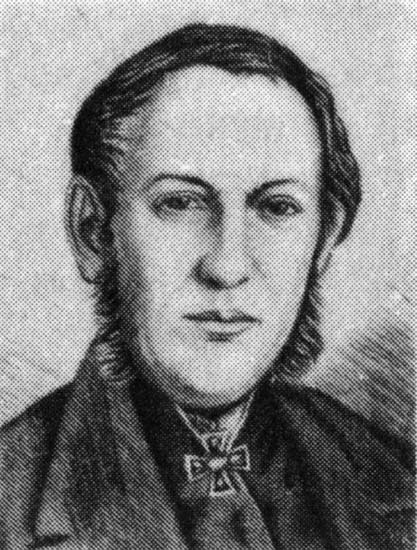Pavel Stroyev on:
[Wikipedia]
[Google]
[Amazon]
 Pavel Mikhailovich Stroyev (Павел Михайлович Строев; 1796–1876) was a Russian paleographer who brought to light some of the most important sources of Russian history, including the
Pavel Mikhailovich Stroyev (Павел Михайлович Строев; 1796–1876) was a Russian paleographer who brought to light some of the most important sources of Russian history, including the
/ref> He was named a corresponding member of the Petersburg Academy of Sciences in 1826 and a full member in 1849. After the Tsar bought the immense manuscript collection of Count
 Pavel Mikhailovich Stroyev (Павел Михайлович Строев; 1796–1876) was a Russian paleographer who brought to light some of the most important sources of Russian history, including the
Pavel Mikhailovich Stroyev (Павел Михайлович Строев; 1796–1876) was a Russian paleographer who brought to light some of the most important sources of Russian history, including the Sudebnik of 1497
The Sudebnik of 1497 (''Судебник 1497 года'' in Russian, or Code of Law) was a collection of laws introduced by Ivan III in 1497. It played a big part in the centralisation of the Russian state, creation of the nationwide Russian Law a ...
, the homilies of St. Cyril of Turov
Cyril of Turov, alternately Kirill of Turov (Church Slavonic Кѷриллъ Туровськiй, be, Кірыла Тураўскі, russian: Кирилл Туровский; 1130–1182) was a bishop and saint of the Russian Orthodox Church. H ...
, the Slavic text of George Hamartolus
George Hamartolos or Hamartolus ( el, ) was a monk at Constantinople under Michael III (842–867) and the author of a chronicle of some importance. Hamartolus is not his name but the epithet he gives to himself in the title of his work: "A compe ...
, and of 1073.''The Peasant in 19th-century Russia'' (ed. by W. S. Vucinich). Stanford University Press, 1968. Pages 220-221. He worked under the auspices of Count Nikolai Rumyantsev
Count Nikolai Petrovich Rumyantsev (; 3 April 1754 – 3 January 1826), born in Saint Petersburg, was Russia's Foreign Minister and Chancellor of the Russian Empire in the run-up to Napoleon's invasion of Russia (1808–12). He was the son of ...
hand in hand with until the latter went insane in 1825.
In 1817 and 1818 Stroev and Kalaidovich wandered from monastery to monastery around Moscow in search of ancient manuscripts. They published several texts of international treaties and other historical documents from the Moscow archive in 1819–21. Seven years later Stroyev launched the first of his "archaeographic expeditions
The Archaeographic Commission (Археографическая комиссия) was set up in St. Petersburg in 1834 by Platon Shirinsky-Shikhmatov, Nikolay Ustryalov, and Pavel Stroyev with the aim of publishing historical and ethnographic m ...
" that led him through no less than 14 provinces in 1829-34 and resulted in the publication of more than 3000 historical documents.The Russian Humanitarian Dictionary/ref> He was named a corresponding member of the Petersburg Academy of Sciences in 1826 and a full member in 1849. After the Tsar bought the immense manuscript collection of Count
Fyodor Andreyevich Tolstoy
Fyodor, Fedor (russian: Фёдор) or Feodor is the Russian form of the name "Theodore" meaning “God’s Gift”. Fedora () is the feminine form. Fyodor and Fedor are two English transliterations of the same Russian name.
It may refer to:
Giv ...
in 1830, it was Stroyev who prepared it for publication.
References
{{DEFAULTSORT:Stroyev, Pavel Russian palaeographers Russian philologists 19th-century historians from the Russian Empire Full members of the Saint Petersburg Academy of Sciences 1796 births 1876 deaths Imperial Moscow University alumni